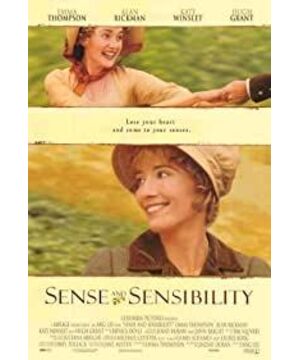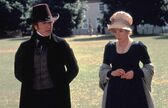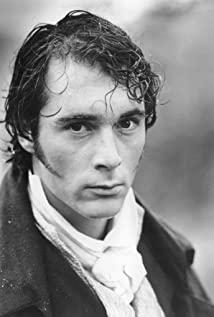this classic soundtrack collection vividly conveys and extends the fate and emotion of the characters in the play.
My Father's Favorite: This piece of music has appeared twice in the movie. The first time in the opening, the main piano melody in the middle is intercepted with violin accompaniment, and the rhythm is slow. The second appearance is the piano solo of the second lady Marianne, which lasts until Miss Eleanor and Edward's love germinated until the two hearts agreed. Most of the music in the film belongs to Marianne, and this section is the only melody that belongs to Eleanor. The music was introduced by an orchestra at the beginning, and then the piano played the main melody. The main key of the piano was repeated three times, and it was calm and soothing, fully expressing Eleanor's sober and forbearing rational temperament, and the rhythm of her love with Edward is also consistent with this. Co-production is a gentle soul fit between kneeling and walking among the blue sky and green space of the lady and gentleman.
Compared to Elinor who is steady and sober. I prefer Miss Sensibility Marianne. The movie talks about emotional and intellectual struggles, but Eleanor does not struggle, or she does not seem to struggle on the outside. The real struggle is reflected in Marianne. When Eleanor frowned and calculated the rent bill and expensive beef, Marianne was still looking forward to stormy love and longing for sonnets. According to the current statement, Marianne has a hot personality, daring to love and hate, but in the end she had to pay for it. After being smoothed by reality, she had to accept the fate of the peaceful woman. The music shows us this process. In my opinion, every passage is a tribute to her.
Marianne is by no means the stupid and frivolous girl of the little sister Lydia in "Pride and Prejudice", but a beautiful girl with artistic accomplishment and temperament. She has the common pride of this kind of women. She played and sang two times in the film. The song, this is tailor-made by Patrick Doyle for Marianne, I Weep You No More Sad Fountains and The Dreame. It is said that the lyrics of I Weep You No More Sad Fountain are a poem circulated in the 16th century. There is no record to test, but it has been adapted into songs and sung by traditional musicians. When Marianne sang it, just at the lunch meeting between Sir Joe and Mrs. Jennings, Colonel Brandon, who was on the way, heard her angel's singing and was immediately conquered by the beautiful and pure girl. From here on, this song I Weep You No More Sad Fountains has become the main theme of Marianne, and it has been moaning in her life and the hearts of the two men passing by her life. So there are two pieces of music derived from the melody of this song, All The Better For Her and Patience, All The Better For Her appeared in Colonel Brandon’s silent attention to Marian, but he was alone in his middle age. The colonel was unavoidably so pitiful that he had no extravagant hopes for his love for Marianne. He said sadly in the dialogue with Sir Joe, "Marian would not consider me to be her husband. This is the best thing. "That's how the name of this piece of music came from. It uses melodious wind and violin, with low sound quality and slow rhythm, which perfectly shows Brandon's sadness of falling into hopeless love. However, the music sounds low and low, and I feel that Marian's shadow is everywhere.
Patience is also in the same tune. When it played, Willoughby was already on the stage. He was Marian’s ideal Prince Charming, handsome and suave. The love between two people turned like the apricot wheels of an open carriage, warmly. Unrestrained, they lingered among the sonnets and sketch silhouettes, Willoughby cut off a lock of Marian's curly hair affectionately, and Brandon watched all of it blankly at the card table. The music at this time is also the melody of Marianne's singing, but compared to the previous song All The Better For Her, this Patience is replaced with a light flute, instead of the dullness of the previous paragraph, it is replaced by romantic warmth and youthfulness. vitality.
The Dreame is the ending song of the movie. Prior to this, it was also played and sung by Marianne. The dust had settled at that time, Marian was abandoned by Willoughby, and then almost died for the lost love. For the rest of her life, she dragged her weak body and lay on the bench listening to Brandon awkwardly reading poems. "Although the sea is still rolling and swallowing the earth, the earth is no longer damaged, because anything, no matter where it comes from, will be carried by the tide, because nothing is lost, but if you look carefully, it will still What do you find?" At this moment, Marian had no strength to criticize the poet's lack of passion, but looked at the benefactor with infinite nostalgia, and said, "Shall we continue tomorrow?" So we heard that she was sending it in Brandon. The music played on her new piano, this song gives people peace, but has the burnout that is about to end. I believe that Marianne will be happy, but there will never be the same happiness as before. A sincere and enthusiastic girl has died. I deeply regret this. I'm not missing the charming Willoughby, on the contrary, I have always been fond of the tender and affectionate Brandon from the beginning to the end. Nevertheless, Marianne's future is still worth worrying about. Maybe she grew up and learned. How to love, but in the end she did not see the love from the heart for Brandon. At the end of the film, emotions are abandoned and reason triumphs, but I just want to say that none of them is wrong.
Combe Magna is undoubtedly the most magnificent unit in the whole work. Marian, sad in the wind and rain, walked on the vast lawn leading to the Magna Valley, where Miss Grey and Willoughby’s new home. The orchestral ensemble embraced the mighty timpani, as if Marianne was holding a funeral for the vigorous love. Facing the manor in the valley, she read Shakespeare’s verse, “If love can change and change with the wind, we don’t really love each other. Love is the eternal beacon of eternity, but it’s not in the face of storms. To move..." Followed by To Die For Love, the storm’s blow made Marianne a fatal infectious flu. At the end of the day, Austin is a gentle person. She thought maybe only let Marianne die and live. , She can survive. If you want to get a new life, you must first completely crush your previous self.
It is also worth mentioning that there are two cheerful minuet pieces in the film, named Willoughby and Miss Grey. The first one is as its name. Eleanor exchanged partners at the ball and unexpectedly met the eloquent Willoughby. . The two greeted each other politely. Eleanor was as calm as ever. In fact, I suspect that she had already guessed Willoughby's grievances, but she had never reminded her sister. When the second dance music Miss Grey sounded, Marian, who was hit by reality, left the party with her sister’s support. The plot began to change sharply with the music. Everything became clear. Mrs. Jennings screamed and reported Willoughby. The news that Lucy has been engaged to the proud and wealthy Miss Grey, and Lucy, who has been privately appointed for life with Edward, is also driven out of the house by the Ferras family. All this proves how correct Eleanor's concept of hierarchy determines marriage. In troubled times, the fat Mrs. Jennings jumped over the horse dung on the stone pavement. This is a piece of music that can bring us laughter, a piece of music that is rare in the film. Mrs. Jennings will never be missing from Austin’s novels. Our flies and dogs jumped.
View more about Sense and Sensibility reviews











